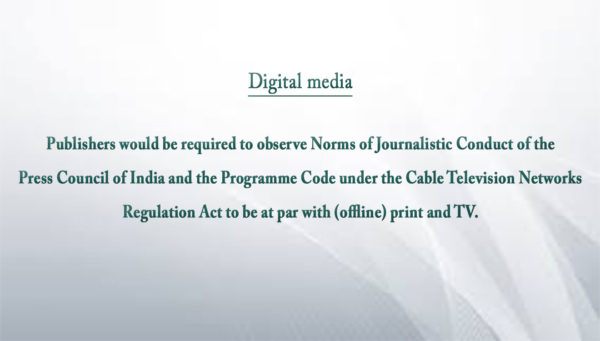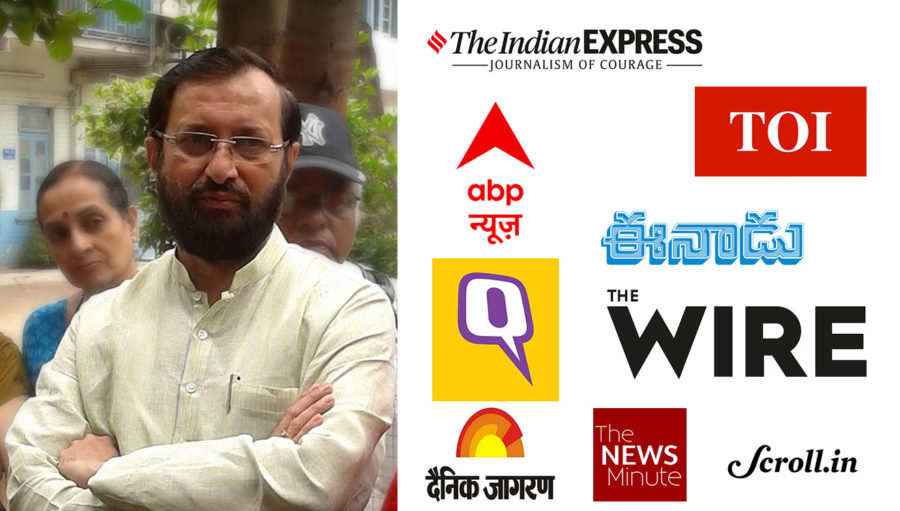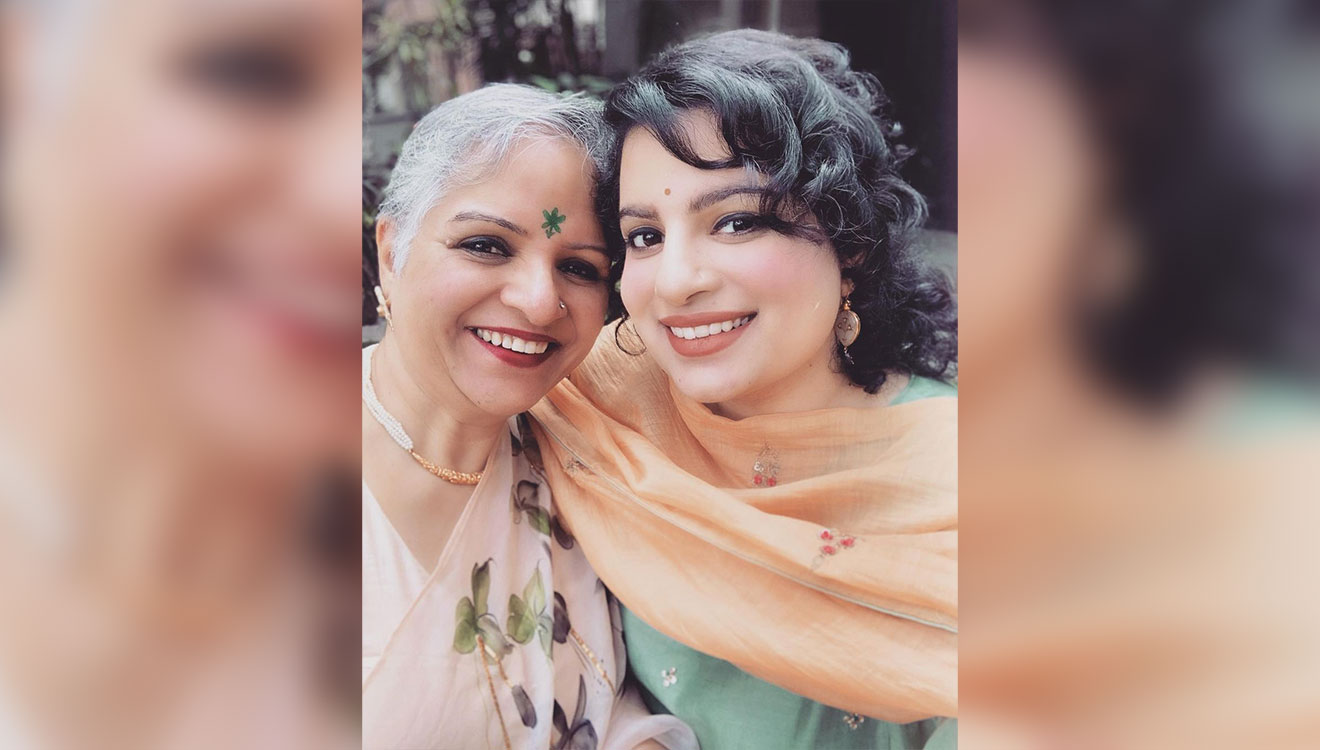Prakash Javadekar, the Union Minister of Information and Broadcasting, held a meeting on Thursday with the members of the Digital News Publishers Association (DNPA) regarding the new Intermediary Guidelines and Digital Media Ethics Code Rules, 2021.
On February 25, the I&B Ministry released new guidelines to regulate content in OTT platforms, social media intermediaries and digital news media. According to the new guidelines, the “news and current affairs publishers are expected to follow the journalistic conduct of Press Council of India and the Programme Code under the Cable Television Network Act, which are already applicable to print and TV”.
The I&B Ministry released a press release stating that “currently there is no robust complaint mechanism wherein the ordinary users of social media and OTT platforms can register their complaint and get it redressed within defined timeline”.
The government wrote in the statement that there was “lack of transparency and absence of robust grievance redressal mechanism” that has “left the users totally dependent on the whims and fancies of social media platforms”.
“Often it has been seen that a user who has spent his time, energy and money in developing a social media profile is left with no remedies in case that profile is restricted or removed by the platform without giving any opportunity to be heard,” the statement read.
The government claimed to have introduced rules that will “substantially empower the ordinary users of digital platforms to seek redressal for their grievances and command accountability in case of infringement of their rights”.
In Part III of the 29-page IT rules, Code of Ethics and Procedure and Safeguards in relation to Digital Media/Online Media pertains to publishers of news and current affairs content, publishers of online curated content, and intermediaries which primarily enable the transmission of both.
Further, the government has introduced the Code of Ethics and the Grievance Redressal Mechanism in a three-tier level- self-regulation by the publishers, self-regulation by the self-regulating bodies of the publishers, oversight mechanism (the government shall coordinate and facilitate with the first and second tiers).

Following the release of the draft, the Foundation for Independent Journalism, publisher of The Wire, filed a petition to strike down the new rules that pertain to regulating content on digital news media platforms as the elements and terms that are different and new in the IT Rules 2021, from its parent IT Act.
On Tuesday, The Delhi High Court issued a notice to the Centre based on The Wire’s petition and gave April 16 as the next date of hearing.
On Wednesday, in another incident, the Kerala High Court passed an interim order restraining the Central government from taking any coercive action against the legal news portal Live Law for non-compliance with provisions under Part III of the new IT (Guidelines for Intermediaries and Digital Media Ethics Code) Rules 2021.
Live Law had filed a writ petition in the court challenging the constitutional validity of the new IT Guidelines and Regulations stating them as “arbitrary, vague, disproportionate and unreasonable” restrictions on digital news media and social media intermediaries.
The petition filed by the Live Law challenged the new rules as “illegal and violative of Articles13, 14, 19(1)(a), 19(1)(g), and 21 of the Constitution of India and also ultra vires the parent Act, the IT Act”. It claimed that the new rules repealed the procedural safeguards that the Supreme Court had ensured during the Shreya Singhal judgment (striking down of Section 66A under the IT Act, 2000) for intermediary regulation.
On Thursday, Javadekar held a virtual meeting with members of DNPA including India Today, Dainik Bhaskar, Hindustan Times, Indian Express, Times of India, Ananda Bazar Patrika, Eenadu, Dainik Jagran, Lokmat, addressing the new rules that “placed certain responsibilities on digital news publishers.”
The I&B Ministry issued a press release after the meeting.
“These include adherence to Code of Ethics such as the norms of journalistic conduct framed by the Press Council of India and the Programme Code under the Cable Television Network Act. Further to redress grievances of citizens the rules have provided for a three-tier grievance redressal mechanism of which the first and second-tier would be of the digital news publishers and self-regulatory bodies constituted by them. The digital news publishers would also be required to furnish some basic information to the Ministry in a simple form which is being finalised and periodically they would be required to place in public domain the grievance redressal undertaken by them,” the press release read.
According to the press release, Javadekar mentioned that print and the television media, who also have a digital presence, publish content “same as that on the traditional platforms. However, there are contents which appear exclusively on the digital platform.”
However, apart from the traditional print and television media, there are several exclusively digital publishers who were not present in the meeting. Mentioning them, Javadekar said in the press release: “Accordingly, the rules seek to cover the news on digital media so as to bring them at par with the traditional media.”
The statement said that the media entities that were a part of the meeting welcomed the new rules and mentioned that television and print media “have been following the laid down norms of the Cable Television Network Act and the Press Council Act for a very long time” and same for the digital versions of publishing.
“They felt that they should be treated differently than those news publishers who are only on the digital platform,” read the press release.
Javadekar tweeted about the meeting on Thursday.
In a follow up to meeting with OTT platforms, held an interaction with Digital News Publishers Association today. Discussed the new rules for digital media. They welcomed the new rules and offered few suggestions which I have noted.@MIB_India @PIB_India
— Prakash Javadekar (@PrakashJavdekar) March 11, 2021
Bharat Gupta, CEO of Jagran New Media, shared the tweet from DNPA that thanked Javadekar for the virtual meeting where Gupta tweeted about excluding digital news media from that of the traditional news media.
Thank you Shri. @PrakashJavdekar Ji for extending us the time. The unanimous demand of the entire DNPA members on the virtual call with your good self today was to exclude the digital news sites/ arms of the traditional news media. We look forward to your support @JagranNews https://t.co/z9GKw9A4K3
— Bharat Gupta (@bharatgupta76) March 11, 2021
Dhanya Rajendra, editor-in-chief of The News Minute and the chairperson of DigiPub News India Foundation, shared Gupta’s tweet seeking clarification from The Indian Express and NDTV and other “big media houses” on the “exemption”.
What does this mean? I hope @IndianExpress @ndtv and others will clarify. Have you all asked for an exemption for yourselves and not for the digital only websites? The big media houses have to clarify now. https://t.co/ty2MhIMxWP
— Dhanya Rajendran (@dhanyarajendran) March 11, 2021
Calling the DNPA statement “shameful”, Jency Jacob, fact checker and managing editor at Boom Live also tweeted on the “exemption” and wrote: “We have read the statement and it’s a shameful one. You asked for exemption while throwing standalone websites under the bus. Not sure why that was needed.”
Jacob pointed out that none of the members of DigiPub India, which is formed by “standalone websites”, were present at the meeting. DigiPub called it an “example of muzzling of journalism”. It is an association comprising several news organisations that intend to “help ensure the creation of a healthy and robust news ecosystem for the digital age”.
The large print publishers and TV channels who also have websites have formed DNPA. None of the standalone websites who have formed @DigipubIndia were at this meeting. Also will be great if DNPA can clarify if they have indeed “welcomed the new rules”. https://t.co/jPx5gyFtVm
— Jency Jacob (@jencyjac) March 11, 2021
Nikhil Pahwa, founder of MediaNama, explained the issue regarding the new IT rules and the meeting with the I&B Ministry of the traditional print and television media with digital presence asking to be “treated differently” from the digital news portals. He tweeted about the problematic applicability of Section 69, the three-tier structure for regulation that “goes beyond self-regulation” and how it impacts the individuals.
Censor the news under section 69, without actually having the legal remit under the IT Act to do this. It also creates an overbearing regulatory structure governing not just news publishers, but also individuals who run their own YouTube channels discussing news and accept…
2/
— Nikhil Pahwa (@nixxin) March 11, 2021
against these rules and not welcome them, or fact check the minister, if indeed they opposed these rules in the meeting. Silence on whether they support the rules is worrying.
3. DNPA was formed to protect interests of India's traditional news publishers. They tactically
A D V E R T I S E M E N T4/
— Nikhil Pahwa (@nixxin) March 11, 2021
which suggests (but doesn't prove) that they want to be excluded from these regulations. So basically, instead of opposing the regulations as a whole, which are unlawful in any case, there is a possibility that they're only asking for themselves to be excluded. Digital-only
6/— Nikhil Pahwa (@nixxin) March 11, 2021
transparent about the position they're taking. It would help if the DNPA put out a more detailed statement on their exact position on this issue. The least one should expect from a body representing news media is for it to have a spine, and be transparent.
— Nikhil Pahwa (@nixxin) March 11, 2021
Pahwa also shared Gupta’s tweet and wrote: “And here’s proof. Throwing digital only publishers under the bus by not opposing the rules as a whole.”



